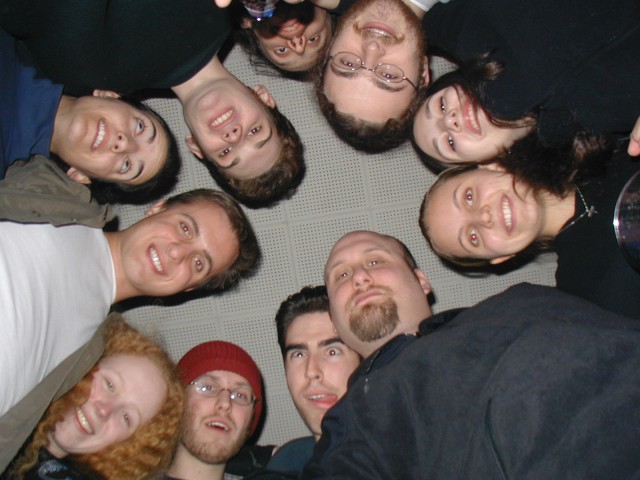With the Australian launch of local search and recommendation site Yelp, it’s worthwhile comparing the different sites to see how well they worked.
The sites work in different ways, some – like Sensis Yellow Pages and True Local – are online directories that search just the title and description of business.
Yelp, Foursquare and Word Of Mouth Online, are socially based and derive their searches on the content and number of community reviews. Their algorithms, the formulas to figure out what customers are looking for, are more complex than the basic online directories.
Most complex of all are the hybrid searches, notably Google Places and Facebook Places, that build local upon their search and social media data.
Each model has it’s own strengths and weaknesses which shows when we do a search. Due to time restrictions we only did two.
Looking for brunch in Neutral Bay, NSW
The first search was using what somebody might be expected to search for on a casual weekend or holiday morning. Neutral Bay and surrounding suburbs have plenty of cafes catering to the brunch crowd so it should be expected to return plenty of hits.
Yelp

The new contender only found one local result and the rest being on the other side of the Harbour Bridge, including one at Bondi Beach which may as well be in the Upper Amazon to the average Sydney North Shore dweller.
Interestingly, entering neighbouring suburbs changes the first two or three results to that suburb but the subsequent listings are the same remote locations as for the Neutral Bay query. This might indicate popularity with the current Yelp users or may be part of the package merchants get when they pay for a listing.
True Local

News Limited’s True Local disappointed one cafe in the district was identified and the number one result was in the city.
This poor results are probably due to the word “brunch” not appearing in the local cafes’ descriptions or titles, but this is a serious weakness for True Local, particularly in a district where they dominate the local news media.
Google Places

Surprisingly, Google Places returned an extremely poor result with no local businesses found.
Again, this is probably due to the failure of business owners to ensure keywords are entered in their business description and it illustrates how Google is allowing an opportunity to pass them by.
Facebook Places
 Nothing. Nyet. Zip. No brunch for you.
Nothing. Nyet. Zip. No brunch for you.
Yahoo!7

Another poor result that has just scraped information off the web. It shows the weakness of the Yahoo! and Channel Seven joint venture which, like News Limited, is letting opportunities pass.
Bing/NineMSN

Probably the most disgraceful of the results, NineMSN returned two cafes for the whole of Sydney, a city of four million people.
The second result entailed, according to Bing’s directions, a 38km drive timed at an optimistic 23 minutes involving $9 in tolls and an illegal u-turn.
NineMSN’s performance shows just how irrelevant Microsoft has become in the online space and their Australian joint venture partner is more interested in selling big integrated campaigns to advertising agencies.
Given NineMSN and Bing are the default browser and search engine on nearly two million computers sold in Australia each year, not having a local business strategy is squandering a massive opportunity.
Citysearch/Sensis

Founded by Fairfax, Citysearch could have been a great success combining the assets and readership of Fairfax’s metropolitan and local newspapers coupled with their experienced sales teams selling advertising space and subscriptions. Good management could have done this.
Sadly Fairfax was being run by Professor Fred Hilmer and his army of power suited McKinsey consultants and Citysearch was eventually sold for a pittance to Sensis, who have allowed it to shrivel away as the zero result for our search shows.
Eatability

Eatability was a genuine surprise, returning no brunch establishments in the area. The only thought is that no cafe in the neighbourhood has the word “brunch” in their keywords. Still a very poor result.
Urbanspoon

The web version of Urbanspoon returned the most bizarre result, correctly finding one local cafe but misinterpreting the address as being in Bankstown on the other side of Sydney.
Urbanspoon’s iPhone app returned a far better range of results in surrounding suburbs although it only found one cafe actually in Neutral Bay which wasn’t the one incorrectly found on their web app, which didn’t appear at all.
Word of Mouth Online

Word Of Mouth Online delivered the best result of the web pages with two of the first three results being relevant. Of the other seven, they met the criteria of being within a 5km radius of the location which in Sydney can be a 12km drive.
The results would have been better with more local establishments but it appears the keyword “brunch” hasn’t been used by many of the WOMO reviewers.
Note: After the review I was contacted by the founder of WOMO, Fiona Adler, it appears some of the reviews have have been updated in the meantime. I’ve changed the results below, but the left the one above as it was correct at the time of the review.
Foursquare

Like Yelp, Foursquare relies heavily on users’ contributions and this shows in the flaky, almost useless results for our search terms on a web based search.
Foursquare’s iPhone app was far more efficient, identifying a range of good venues in the area which were ranked according to friends’ recommendations.
Sensis/Yellow Pages

Again, “no brunch for you.” It’s almost scandalous that Yellow Pages has no entries at all for “brunch” for an inner Sydney suburb.
Redoing the search
Clearly the term “brunch” is problematic in all the services, so as a check here’s the relevant first page results for other search terms on each of the services;
| Service |
Café Neutral Bay |
Breakfast Neutral Bay |
Lunch Neutral Bay |
| Yelp |
7/10 |
2/10 |
7/10 |
| True Local |
9/30 |
0/30 |
0/30 |
| Google Place |
10/10 |
0/10 |
10/10 |
| Yahoo!7 |
|
not relevant |
|
| Bing/MSN |
3/10 |
0/10 |
0/10 |
| Citysearch |
6/10 |
3/6 |
4/4 |
| Eatability |
40/50 |
8/8 |
23/31 |
| Urban spoon |
3/3 |
0/0 |
0/0 |
| foursquare |
3/20 |
1/20 |
1/20 |
| WOMO |
8/10 |
2/10 |
5/10 |
| Sensis |
7/10 |
0/10 |
0/10 |
As we found with the earlier search, Yelp was somewhat inconsistent and no doubt the social aspects will see it improve as more users come on board, the results are highly dependent on the terms used by reviewers and this will affect the search results.
True Local’s score was surprisingly bad, the search for “cafe” found 12 places but three are long closed. “Breakfast” listed B&B accomodation and “lunch” found outlets in the city and Eastern Suburbs.
Google Places also disappointed on “breakfast”, picking up some B&B establishments along with some city cafes. This is almost certainly due to keywords missing in descriptions.
Yahoo!7 doesn’t get a rating as all it does is scrape other sites and often refers you to other search services. They are just going through the motions.
Microsoft and NineMSN’s service again failed dismally; the “cafe” result was poor, “breakfast” looked for B&Bs and “lunch” amazingly didn’t find a thing in Neutral Bay.
Citysearch’s results for “cafe” found nine places, three of which are long closed which indicates the lack of maintenance their database receives. Encouragingly, Citysearch was one of the best performers for lunch and dinner, albeit only on four and six places found.
Eatability had by far the most impressive number of results, however a large proportion of the places have closed and are not flagged as such. This probably indicates a lack of maintenance by the owners.
WOMO was good and like Yelp their results are highly dependent on the words used by reviewers, so key words could be missed simply because reviewers didn’t use them.
Sensis performed well on “cafes” except that three of the ten listed were closed. The lack of results on “breakfast” and “lunch” is due to no places having those words in their name.
Conclusions
This comparison is not scientific, being based on a narrow search and small sample size, but there’s a few things we can take away from the experiment.
Search is still young
Right now, search is still a crude tool.
From the results, we can see that the keywords used by reviewers and businesses matter. If the public are looking for “brunch” and that isn’t on your cafe’s website and online listings, then you won’t appear.
Over time that will change as the web and search engines get smarter but right now search is still at a basic stage in its development.
You have to be there
Customers are using these tools to find what they need and if a business isn’t listed, then they can’t be found. Setting up a profile and getting some favourable reviews is important.
The business who are being pro-active are the ones who are succeeding.
There’s a lot of opportunity
It’s no surprise that older organisations like Fairfax, Sensis and Microsoft are failing to understand local search. What is suprising is how poorly the newer players like Google and Facebook are doing.
This opens up a lot of opportunity for services like Yelp and Foursquare in adding value to the data already available through services like Google, Facebook and Sensis.
Yelp’s tie up with Sensis makes a lot of sense from the US company’s point of view; they get to ride on Sensis’ sales team, maybe some licensing fees and – most importantly – they can access the richest, albeit not always accurate, database of Australian businesses.
For small, local business there’s a lot of opportunity as well. By getting online and registered on these services, it’s possible to become more visible and improve your competitive position.
The market’s young and there’s a lot of potential for disruptive players. It will be interesting to see how incumbents deal with the threat.
Similar posts:








 Nothing. Nyet. Zip. No brunch for you.
Nothing. Nyet. Zip. No brunch for you.






